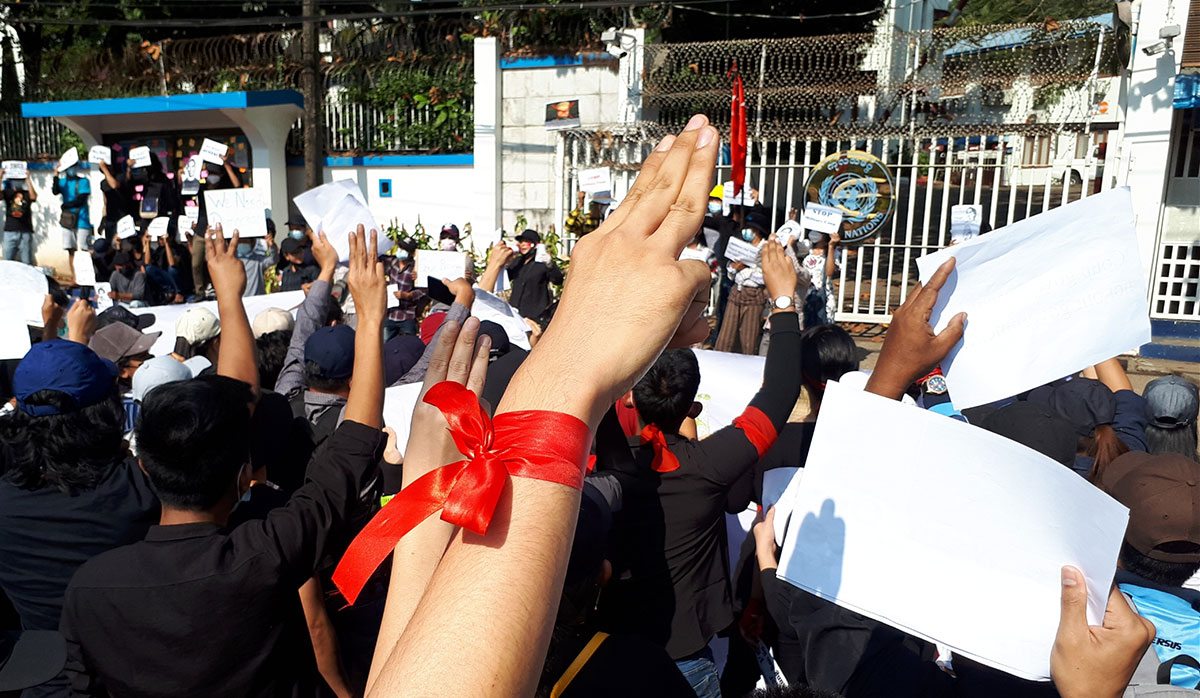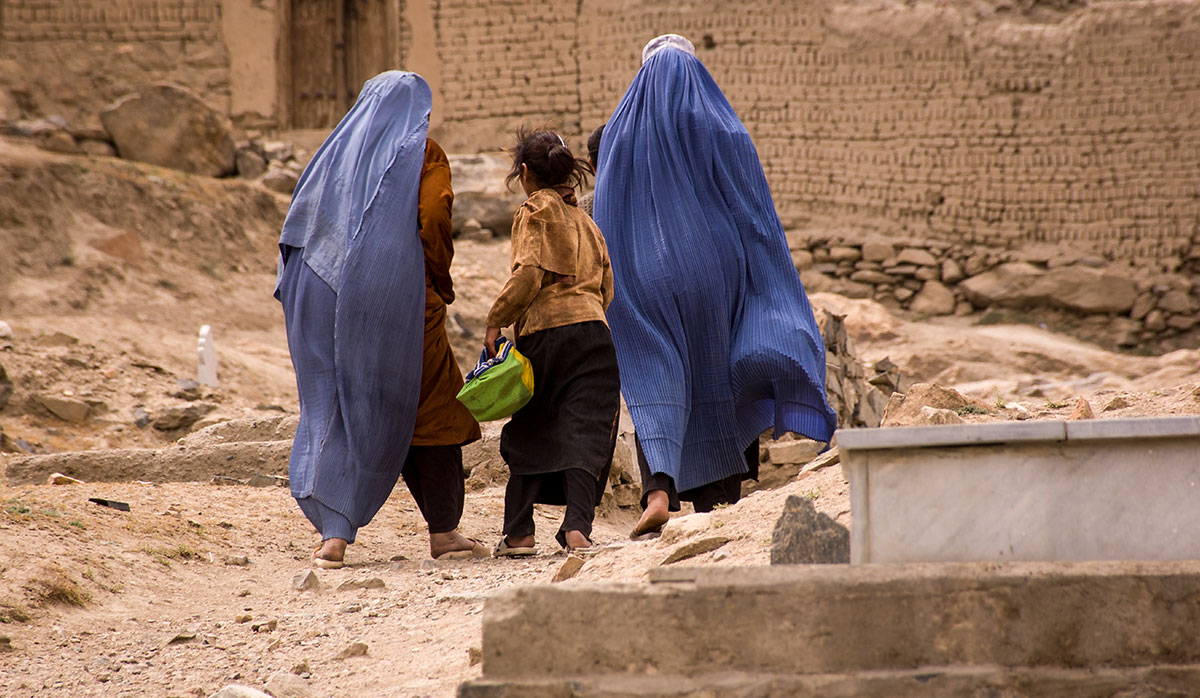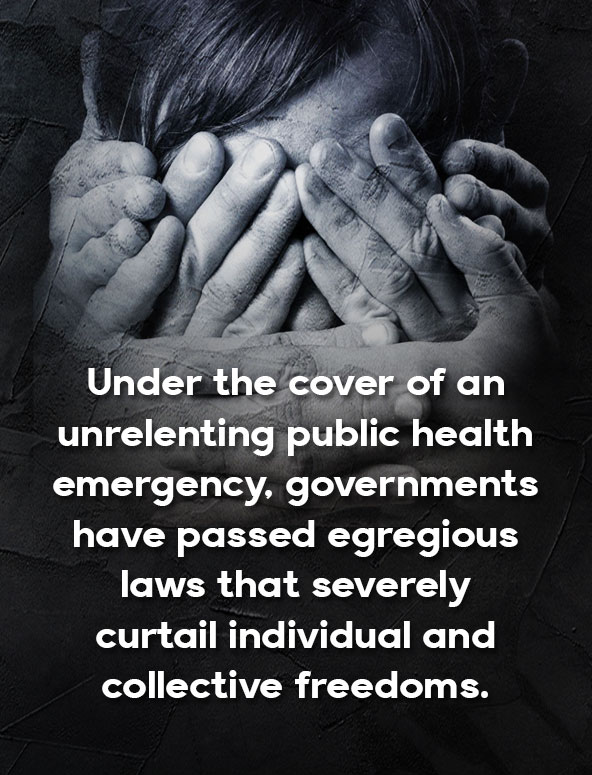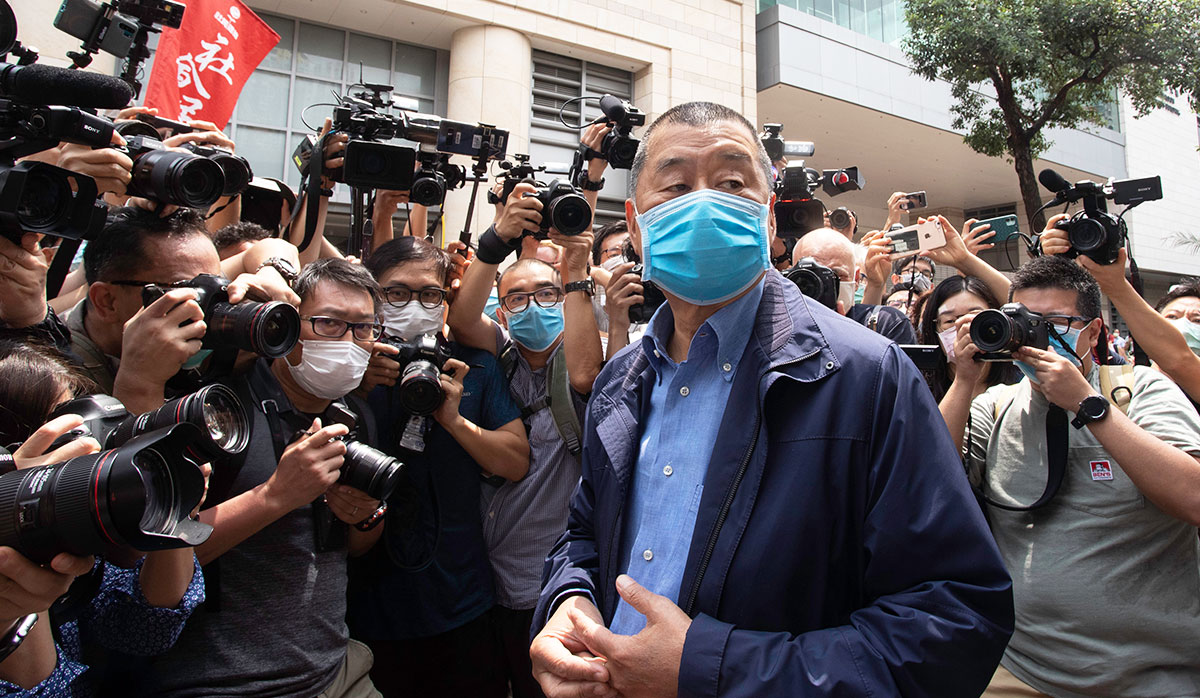When the COVID-19 pandemic first closed borders and economies in early 2020, no one seriously expected it to stretch on for a year. Public health experts were pinning their hopes on a unified global front that would quickly cut the viral transmission. But today, the pandemic threatens to stretch far beyond its third year, shattering expectations.
The year 2021 was witness not only to COVID-19’s Delta and Omicron variants, both responsible in large part for the protracted pandemic, but also to the multitude of ways in which the virus became a litmus test for governments and civil society at large.
Nowhere was this most evident than in Asia. Some countries, like South Korea, Singapore, and China, performed spectacularly, weathering the worst virus surges with grace, keeping their doubling times low and vaccination rates high. Other governments, on the other hand, failed just as spectacularly. In India, people were left dying in streets and hospital parking lots without even a single cylinder of oxygen — all while supposed leaders held self-serving political rallies.
While COVID-19 allowed efficient, action-oriented administrations to shine, it also exposed petty tyrants for who they are. Under the cover of an unrelenting public health emergency, governments have passed egregious laws that severely curtail individual and collective freedoms.
The Philippine Supreme Court, for example, upheld the highly controversial and deeply flawed Anti-Terrorism Act of 2020, opting to water it down rather than scrapping it outright. Hong Kong banned commemorations for the Tiananmen massacre, ostensibly to prevent a surge in COVID-19 cases. For nevertheless urging people to go and observe the massacre’s anniversary in public spaces, tycoon and media giant Jimmy Lai was sent to prison. In the middle of this political maelstrom is China’s aggressive push to assert its sovereignty over the beleaguered special administrative region using the much-maligned National Security Law.
Like Hong Kong, many Asian countries are waging a war on two fronts: the pandemic and the repressive laws targeting democracy advocates and human rights defenders. But while before democrats and rights advocates could count on support from like-minded colleagues from without, the general disruption caused by the pandemic and increasingly inward-looking nations have meant that even peoples under siege have been left to fend for themselves.
Indeed, as powerful countries like the United States focus on preserving their prominence and boosting their economies, the regional and international mechanisms to foster cooperation and solidarity have fallen limp.

Protesters outside the United Nations office in Yangon, Myanmar on Feb. 8, 2021, one week after the country’s military staged a coup. Citizens are calling on the international community to hold the military junta accountable for its actions.
International inaction
Nowhere is this starker than in Myanmar and Afghanistan. Both have descended into chaos after their respective governments were overthrown in 2021 — and the rest of the world has mostly just sat and watched.
In Afghanistan, the importance of linking aid with sustainable development and civic foundation-building has also become clear. Civil society flourished under the rule of the government that was backed by the United States and its allies, and women and minorities grew to enjoy an increasingly equitable place in Afghan society.
But the same could not be said of the country’s governance and national defense systems. The central government remained corrupt and backward, its armed forces weak. So when the Western forces led by the United States unceremoniously withdrew their troops from the country late last August, the Taliban faced virtually no resistance to their bid to regain control of the entire country.
“We lost our country, we lost our people, we lost our dignity,” said Judge Najla Ayoubi, Chief of Coalition & Global Programs at Every Woman Treaty, at a November 2021 event on Afghanistan under Taliban rule. “We lost the 20 years of hard work that we put for the democratization of the country that we believed in — and the hope of our future generations.”
Now, in the face of a monster of their own making, the United States and their allies have gone silent. Aid has been slow, especially in light of U.S. sanctions against the Taliban, which experts believe only aggravate the already dire situation in the country.

As the U.S. military withdrew from Afghanistan, the Taliban intensified their offensive and eventually took over the capital, Kabul, in August 2021. Many citizens feared a return to repressive rule and sought refuge in neighboring countries or further abroad.
“The U.S. was the leading government on intervention in Afghanistan and also in withdrawal,” said Ayoubi. “But what about other governments? There were 48 governments involved in Afghanistan. Why are they also silent? I don’t know if they are following the U.S. or if they’re also thinking: ‘Okay, this is new normal for Afghans’.” She asked, “Where is the accountability?”
In the case of Myanmar, the international community seems to have decided that much of the buck stops with the Association of Southeast Asian Nations (ASEAN), since Myanmar is among its 10 members. But ASEAN is infamous for having a policy of non-interference, although that has cracked slightly in the face of the wanton violence the people of Myanmar have been suffering in the hands of the junta.
In late October 2021, ASEAN took the unprecedented step of disinviting junta chief Min Aung Hlaing from its annual summit, saying that the military government had failed to meet its “peace commitments.” That has earned ASEAN applause from some quarters, but no one is expecting much more from the regional bloc.
Myanmar’s armed forces forcibly took over power from the democratically elected government led by Aung San Suu Kyi in February 2021. While the earliest days of the coup were marked by internet blackouts and indiscriminate arrests against protesters and political oppositions, the Tatmadaw has since dropped any pretense of tolerant engagement.
Myanmar’s press has suffered the worst of the Tatmadaw’s power-hungry crusade. More than a hundred journalists have been illegally arrested, around 40 of whom are still detained, since last year. Fifteen journalists have been convicted of crimes, while one has died in custody.

There has been some strong posturing from the international community, but not much by way of concrete action has been done to help the people of Myanmar. Worse, international bodies continue to implement programs in partnership with the military government, only serving to legitimize the coup.
“People have outrightly rejected this unlawful terrorist organization and they are sacrificing everything — their lives, their futures, their families — all to establish democracy,” said Khin Ohmar, founder and chairperson of nonprofit Progressive Voice, in an online event held in November 2021.
“We don’t want you to lend any legitimacy to the military,” she said. “You must not do anything to normalize this illegal attempted coup.”
Weaponizing the law
Unfortunately, the international community has barely done anything when it comes to addressing the crisis in Myanmar. This is why the military thinks it can get away with anything it wants to do with the Myanmar people, although the junta has made some effort to give its actions a semblance of legality by manipulating the country’s laws. For example, almost immediately after the coup, the Tatmadaw introduced small but important changes to the country’s penal law, essentially criminalizing what it dubs “fake news” and making it easier to arrest people for merely criticizing the military.
The bad news is that Myanmar is not the only country in the region where those in power have been bent on using the law to consolidate power and to crush dissent. Similarly worrying developments against free speech and dissent are also seen throughout Asia, from the Anti-Terror Law in the Philippines to Thailand’s lèse-majesté law.
South Korea, one of the bastions of democracy in Asia, has also joined the troubling trend of enacting too-broad laws by introducing amendments to its Press Arbitration Act. Slated as a measure to combat the rising problem of fake news, the amendments instead drew worry from press freedom advocates for imposing impossibly steep fines on media companies and for its risk of overregulation.
Then there are next-door neighbors India and Pakistan, which rarely see eye to eye on political matters, especially given their long history of territorial disputes, yet agree on the maximum use of controversial sedition laws — even if it means stretching the limits of legalities. Both countries have the British colonial-era laws to peg valid criticism and protests as proof of deeper conspiracies to undermine the state.
As a result, the media landscape across Asia has never looked bleaker. The year 2021 was marked by some of the most egregious offenses against media workers. Myanmar jumped up the list of the world’s worst jailers of journalists, placing second only to China. Eight members of the press were jailed in Hong Kong, including media mogul Lai; the year prior, Hong Kong imprisoned not a single journalist.

Jimmy Lai, Hongkong media tycoon and founder of the now-shuttered Apple Daily newspaper, was sentenced to prison in 2021 along with other pro-democracy advocates.
India tops the list of the world’s deadliest countries for journalists, according to the Committee to Protect Journalists. In 2021, five reporters were killed in the country, four of whom were murdered in retaliation for their work. Other Asian countries closely trail India. Pakistan, Afghanistan, and the Philippines, for instance, each counted two confirmed journalist deaths in 2021, while Myanmar and Bangladesh each tallied one.
But the Committee to Protect Journalists only counts confirmed incidents of violence and deaths against journalists — and misses out on many more that go unreported. In particular, the situations in both Myanmar and Afghanistan have made it difficult for international organizations to accurately monitor the state of the media in the country and for local groups to report outward. In both countries, though, it’s clear that illiberal leaders in positions of power are comfortable with their violent repression of the press.
“To address these very grave issues that we are facing as the region, the answer is consolidate, consolidate, and consolidate,” said Karel Jiaan Galang, program officer of the Asia Democracy Network, during the annual general assembly organized late last year by the regional organization.
In the same online event, like-minded groups touched base with one another, taking stock of the year that was soon to end, and lending each other a comforting ear and a (virtual) hug of solidarity. This, while committing to forge unities, to re-affirm their people-centric and intersectional commitments, and to work toward further expanding their ranks. After all, the fight to reclaim democratic space concerns everyone.
“We need to build capacities and expand networking within not only our sectors but also to the various democracy sectors who are yet within our circles,” Galang said. “We need to connect, connect, and connect.” ●
Tristan Manalac is an independent journalist from the Philippines, focusing on health and medicine, the environment, and science. After a brief stint as a research scientist, he traded the sterile walls of a laboratory for the chaos of the newsroom.
Read Part 2: The year that will be: A united push for change



















